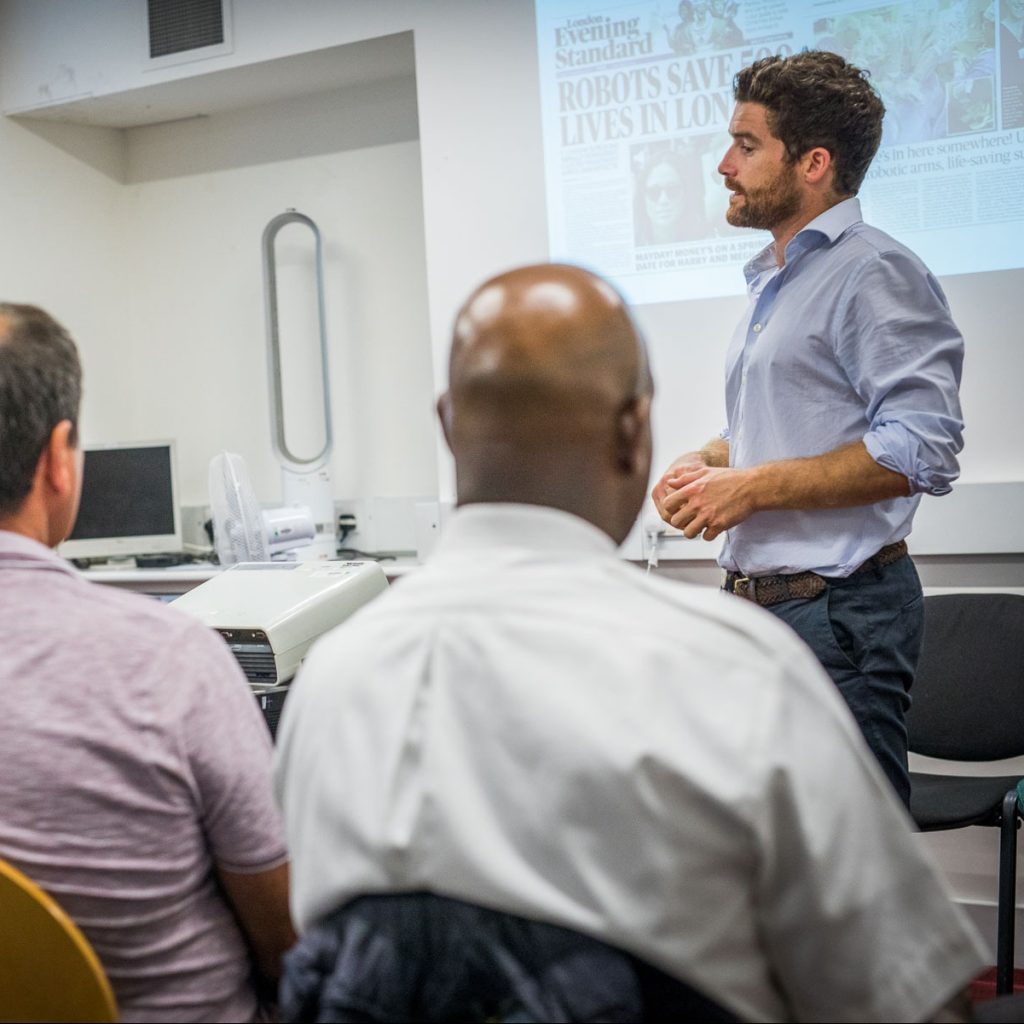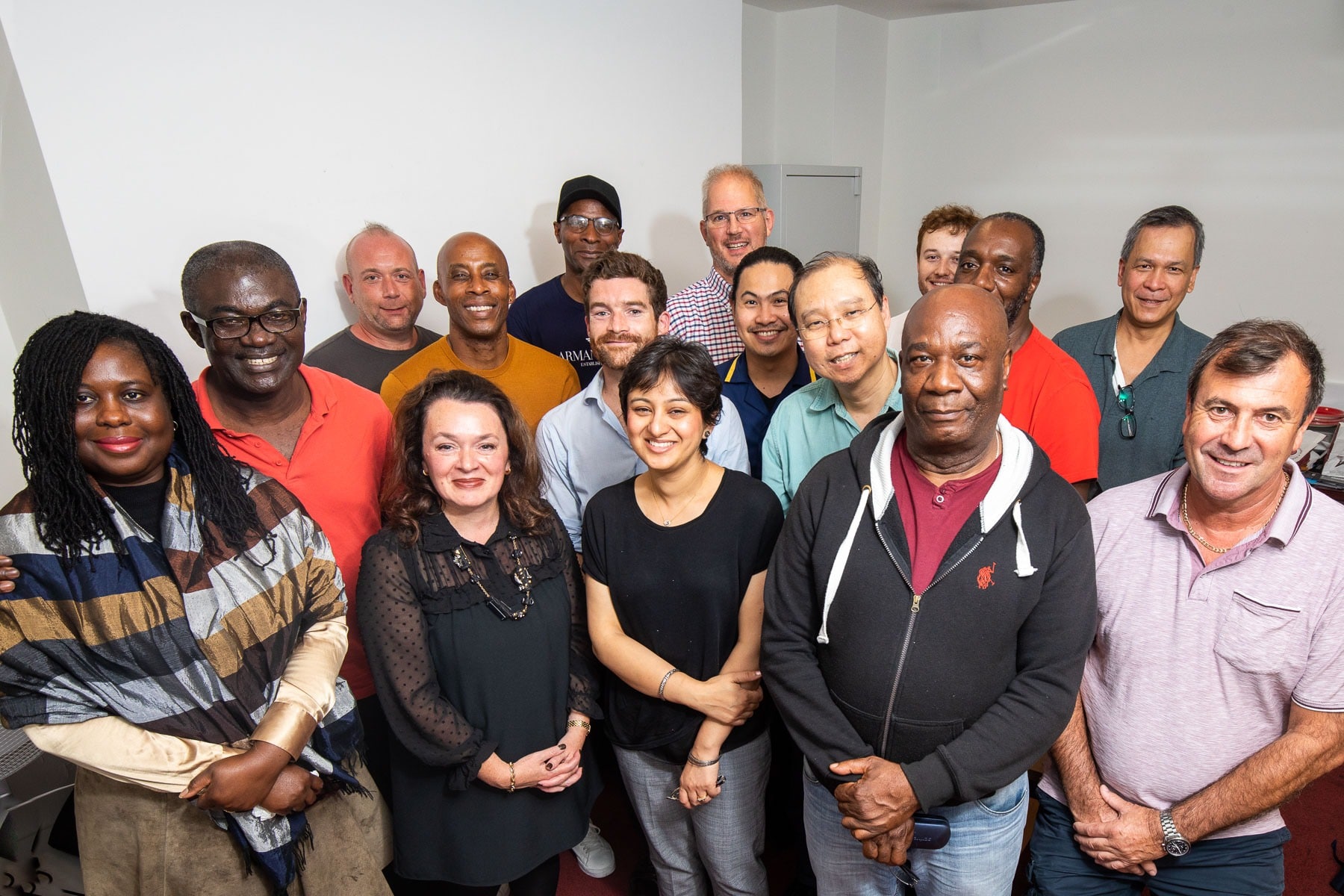
NeuroSAFE PPI Day
2018
University College London Hospital PPI Day 2018
On the 20th of September 2018 the NeuroSAFE PROOF Trial Team hosted a Public Information Afternoon at UCLH for men and their loved ones to find out more about the work of the NeuroSAFE Project. The afternoon, supported by Orchid, was a great success in raising the profile of prostate cancer early diagnosis and allowing the men in attendance (many of whom have undergone surgery for prostate cancer as part of the trial) to tell their story and ask questions about prostate cancer.
NeuroSAFE PROOF began as a surgical research feasibility study that recruited men with ‘organ confined’ prostate cancer who were undergoing surgery to remove the prostate. The trial was opened by Chief Investigator Mr Greg Shaw (Consultant Urological Surgeon) in April 2018 at University College Hospital London and is now also recruiting at three new centers, Bristol, Sheffield and Glasgow as part of the next phase of the study. Feasibility studies are often precursors to bigger full-scale clinical trials where the research team aim to assess whether the study questions are appropriate and whether it will be possible to enroll patients into the trial.
The NeuroSAFE feasibility study was a success and has since moved onto its next phase.
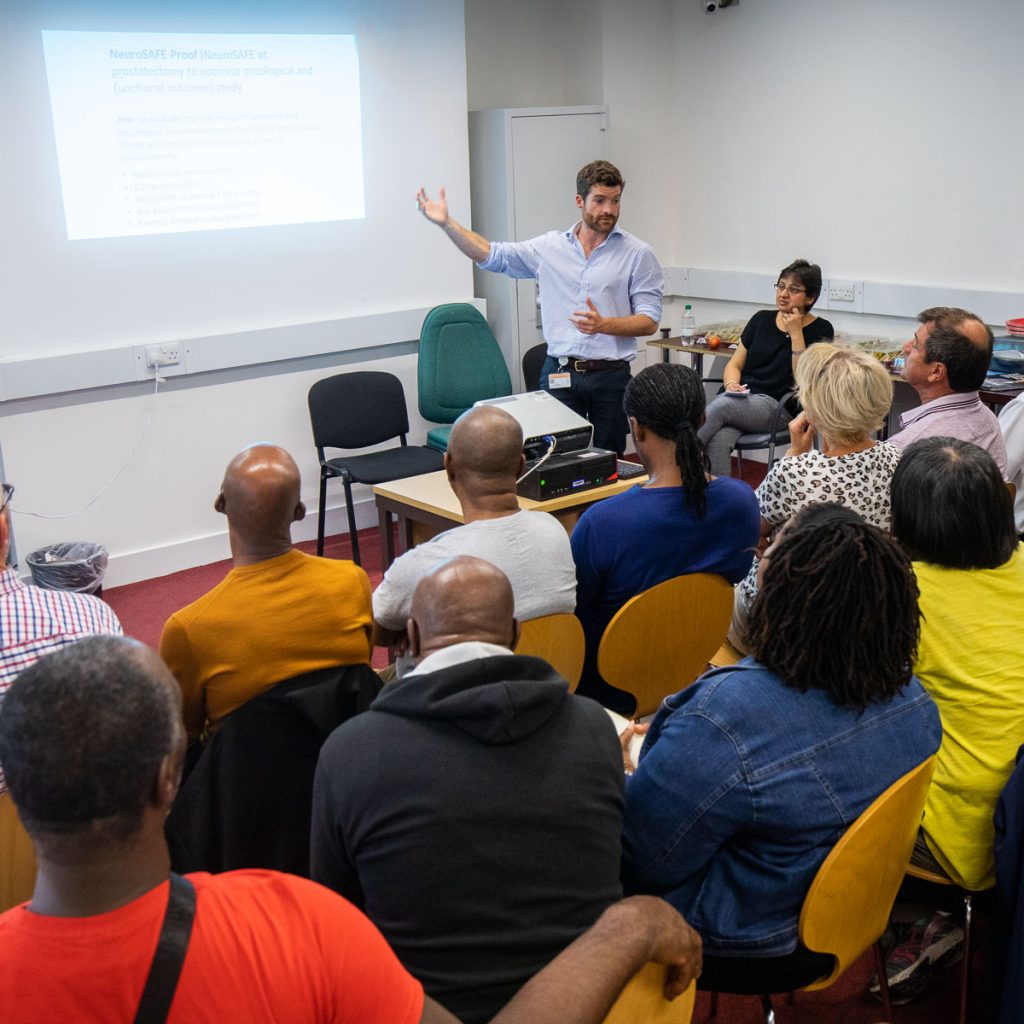
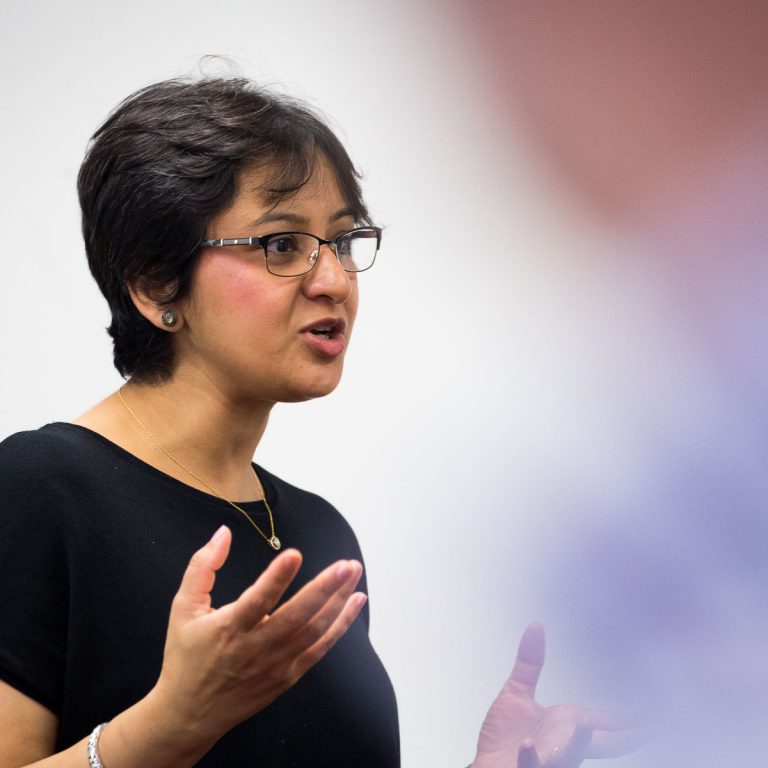
A little about NeuroSAFE trial and the NeuroSAFE technique… When men undergo surgery for removal of their prostate for cancer, there is a balance between removing all the prostate tissue that could harbor cancer and preserving some of the important structures surrounding the prostate. The prostate is a little bit like an onion in that it has layers surrounding it, known as the capsule. Within these layers, closely around the prostate, live the nerves that are important for erections. We want to protect these important nerves within the layers of the capsule, but not if they are also involved in the cancer process. The NeuroSAFE technique involves looking at the capsule of the prostate under a microscope as soon as it has been removed by the surgeon to see whether the cancer goes up to or even outside of the capsule and into the nerves. This technique is performed whilst the patient is still asleep (general anesthesia) with the aim give the surgeon greater guidance about whether or not they can safely preserve these important nerves during the operation.
The NeuroSAFE trial aims to evaluate this technique to see if it will bring about an improvement in the outcomes for men undergoing this cancer-curing surgery by either allowing the surgeon to preserve more important nerves whilst simultaneously not missing cancer if it is outside of the prostate capsule. NeuroSAFE PROOF is a randomized clinical controlled trial, which means that of the men who agree to join our study, 50% will have the new technique and 50% will have the standard of care. It is important to evaluate a new technique in this manner when there is uncertainty as to its full value so we can compare the outcomes of men who had the new technique against those who did not.
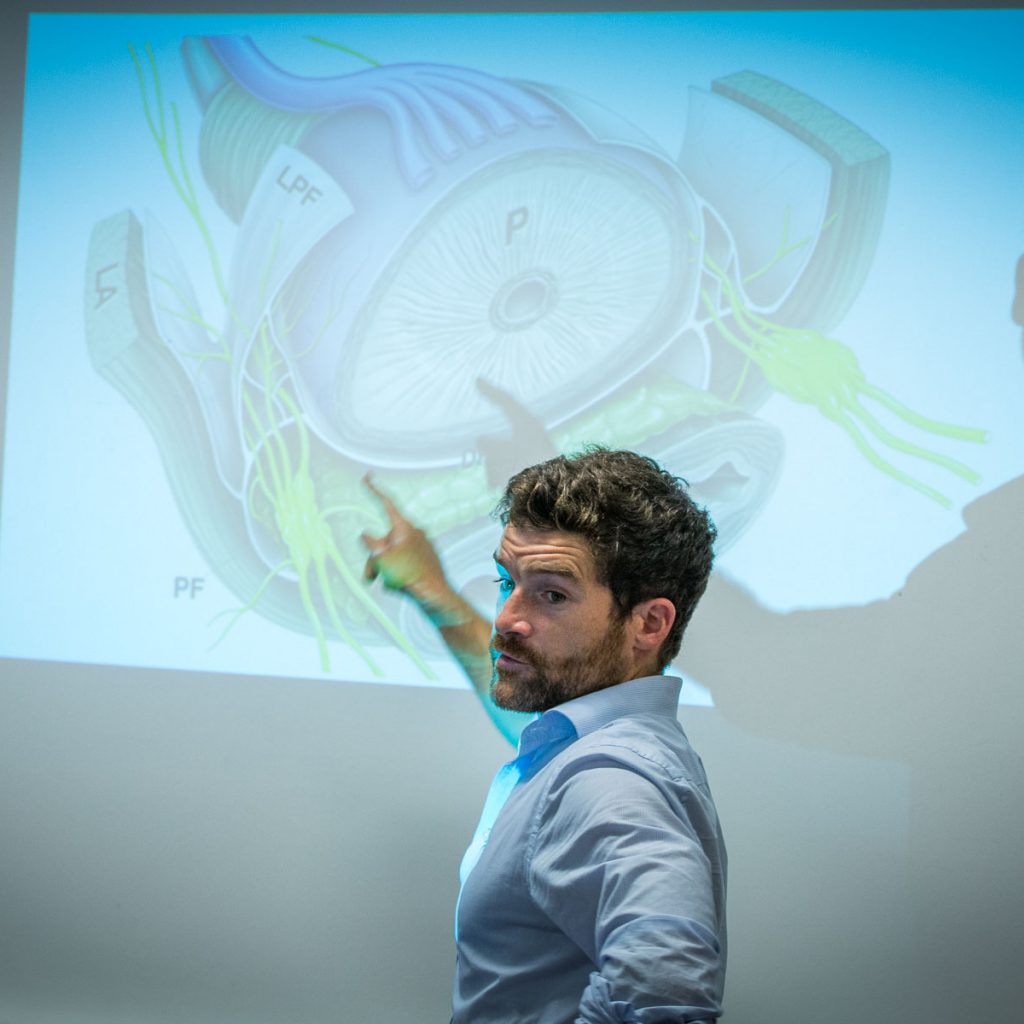

During the afternoon, the men heard presentations from Mr Eoin Dinneen (NeuroSAFE fellow), Dr Aiman Haider (NeuroSAFE histopathology Fellow), Rebecca Porter (Chief Executive of Orchid), and Robert Cornes (Clinical Nurse Specialist for Orchid). They also watched videos about the NeuroSAFE technique and were given more information about the goals of the trial. Men were encouraged to ask questions about the trial, their prostate cancer journey and the treatments they had undergone.
The NeuroSAFE PROOF team were keen to learn from patients, participants and their loved ones, particularly with regards to the design of the trial, their experience as participants, the amount of information they feel is appropriate to receive as a participant and what the perceived benefit of the NeuroSAFE technique might be for the NHS in the future. The afternoon was helpful to allow the trial team to get feedback from patients that to help them us to shape the full, larger NeuroSAFE trial.
The NeuroSAFE trial aims to evaluate this technique to see if it will bring about an improvement in the outcomes for men undergoing this cancer-curing surgery by either allowing the surgeon to preserve more important nerves whilst simultaneously not missing cancer if it is outside of the prostate capsule. NeuroSAFE PROOF is a randomized clinical controlled trial, which means that of the men who agree to join our study, 50% will have the new technique and 50% will have the standard of care. It is important to evaluate a new technique in this manner when there is uncertainty as to its full value so we can compare the outcomes of men who had the new technique against those who did not.
